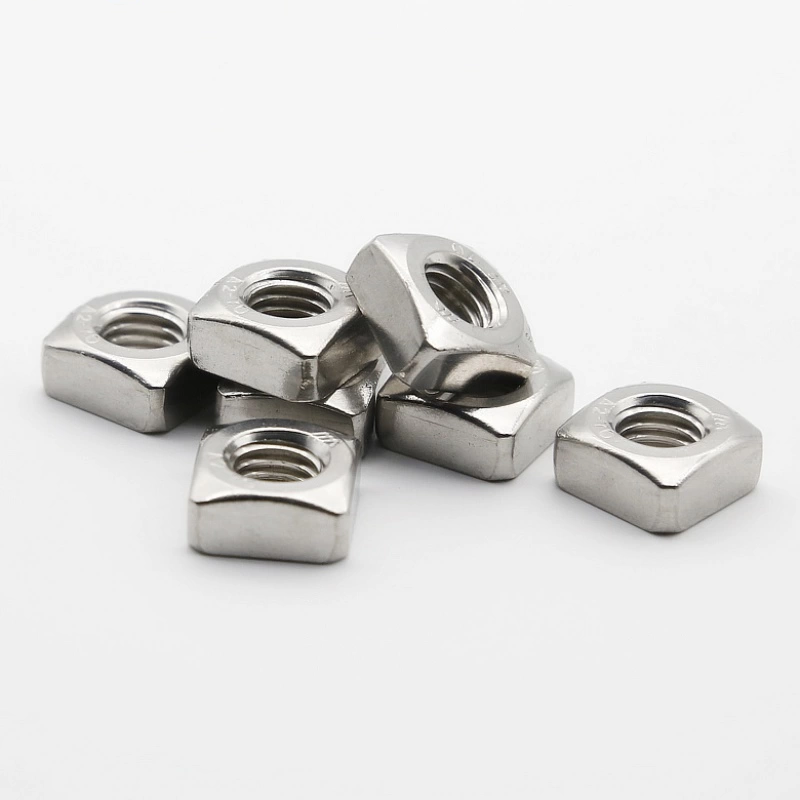

17mm Flange Nut Specifications and Applications for Various Industries
Ogo . 19, 2024 11:53 Back to list
17mm Flange Nut Specifications and Applications for Various Industries
Understanding the Importance of the 17mm Flange Nut
In the world of mechanical engineering and construction, the choice of fasteners can significantly influence the integrity and durability of the assembly. One of the often-overlooked fasteners is the 17mm flange nut, which plays a crucial role in various applications ranging from automotive manufacturing to general construction. This article delves into the specifications, applications, and advantages of using a 17mm flange nut.
What is a Flange Nut?
A flange nut is a type of nut that features a wide circular flange at one end. This flange acts as an integral bearing surface, distributing the load over a wider area when tightened against a surface. The 17mm flange nut typically has a nominal width across the flats (the distance between the opposite edges) of 17mm, making it an ideal choice for certain bolt sizes and applications.
Specifications
The specifications of a 17mm flange nut can vary based on material, thread type, and finish
. Most commonly, these nuts are made from high-strength steel, stainless steel, or nylon, with coatings available to enhance corrosion resistance. The threaded interior can vary to fit various bolt sizes, predominantly those with compatible thread pitches. Additionally, the flange provides the added benefit of acting as a spacer, allowing for adjustments in assembly without sacrificing fastener performance.Applications
17mm flange nuts are widely used across various industries due to their versatility. In the automotive field, they secure components like exhaust systems, engine mounts, and suspension elements. Their ability to distribute load helps prevent loosening over time, which is critical in high-vibration environments.
17mm flange nut

In the construction industry, flange nuts are often used in conjunction with bolts to secure structural elements, such as beams and trusses. The flange design allows for more surface area contact, reducing the risk of damage to the material being fastened. Additionally, they are employed in manufacturing equipment and machinery, where durability and reliability are paramount.
Advantages of Using 17mm Flange Nuts
One of the primary benefits of using 17mm flange nuts is the enhanced load distribution. The wide flange prevents the nut from digging into softer materials, which is particularly advantageous in applications involving softer substrates. This characteristic leads to a more secure assembly and prolonged life of the joint.
Moreover, flange nuts can help minimize the potential for galling, which can occur when metal surfaces rub against each other under pressure. Using flange nuts made from different materials than the connected bolts can alleviate some of these issues, promoting smoother operations and reducing maintenance needs.
Another significant advantage is the ability to use a standard socket to tighten these nuts, ensuring ease of installation and removal. The 17mm designation ensures compatibility with commonly used tools, making it accessible for both professional and DIY applications.
Conclusion
In summary, the 17mm flange nut is a vital component that significantly contributes to the reliability of fastened connections across various sectors. Its unique design allows for enhanced load distribution and greater stability in applications where vibration and movement are prevalent. Regardless of the industry, understanding and using the appropriate fasteners, such as the 17mm flange nut, are essential steps toward ensuring the safety and longevity of mechanical assemblies. For any project requiring reliable fastening, the 17mm flange nut should not be overlooked.
Latest news
-
Premium Fasteners Manufacturer | AI-Driven Solutions
NewsAug.01,2025
-
Hot Dip Galvanized Bolts - Hebei Longze | High Strength, Corrosion Resistance
NewsAug.01,2025
-
High-Strength Hot Dip Galvanized Bolts - LongZe | Corrosion Resistance, Custom Sizes
NewsAug.01,2025
-
Best Self Tapping Screws for Drywall - Fast & Secure Installation
NewsJul.31,2025
-
High-Strength Hot Dip Galvanized Bolts-Hebei Longze|Corrosion Resistance&Customization
NewsJul.31,2025
-
Hot Dip Galvanized Bolts-Hebei Longze Metal Products|Corrosion Resistance&High Strength
NewsJul.31,2025

